-
 Creating good listening conditions for learning in education: Preliminary noise survey
Creating good listening conditions for learning in education: Preliminary noise surveyThe survey will help you to assess a nursery or school’s listening environment. It can be used by parents, teacher, school leaders of Teachers of the Deaf (ToD).
-
 Creating good listening conditions: Presentation for Teachers of the Deaf
Creating good listening conditions: Presentation for Teachers of the DeafThe presentation looks at how listening conditions affect the learning environment for all children (hearing and deaf), how you can improve the learning environment and the legal framework.
-
 Creating good listening conditions: Pupil survey
Creating good listening conditions: Pupil surveyThis resource includes examples of questions you can use to find out pupils’ opinions on listening conditions in the classroom.
-
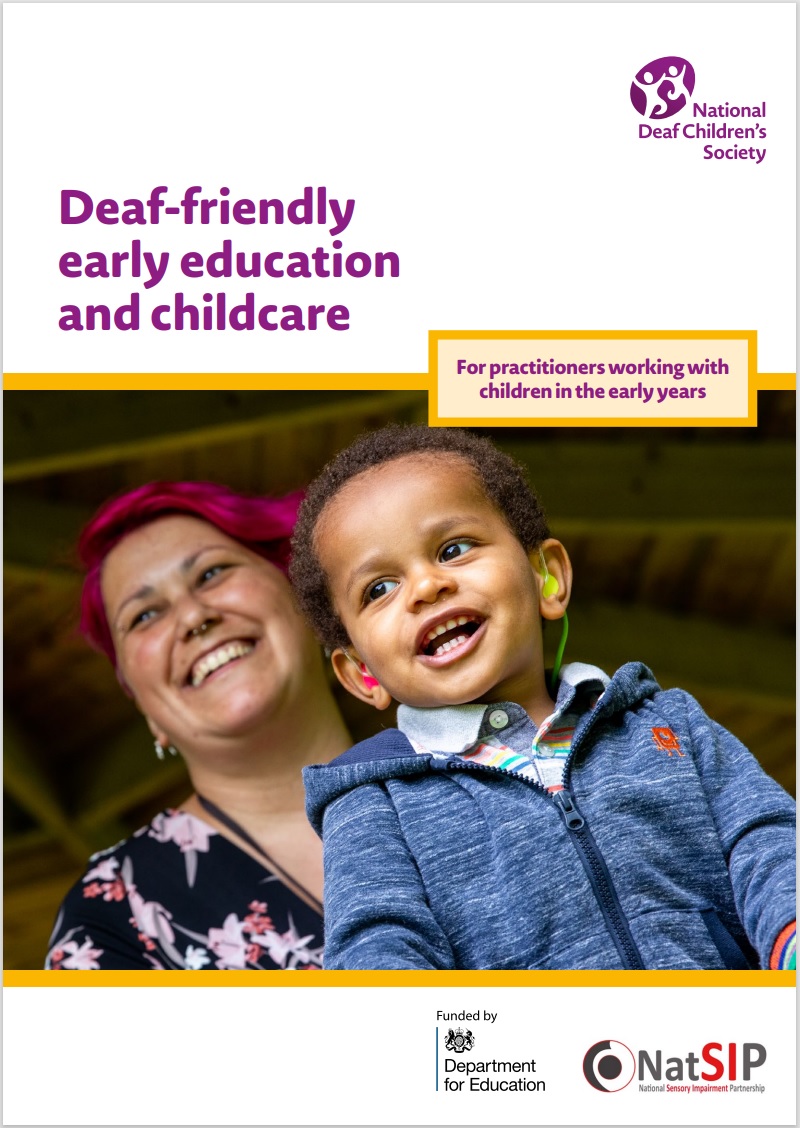 Deaf-friendly early education and childcare
Deaf-friendly early education and childcareThis resource is for anyone working with deaf children in an early years setting.
£0.00
-
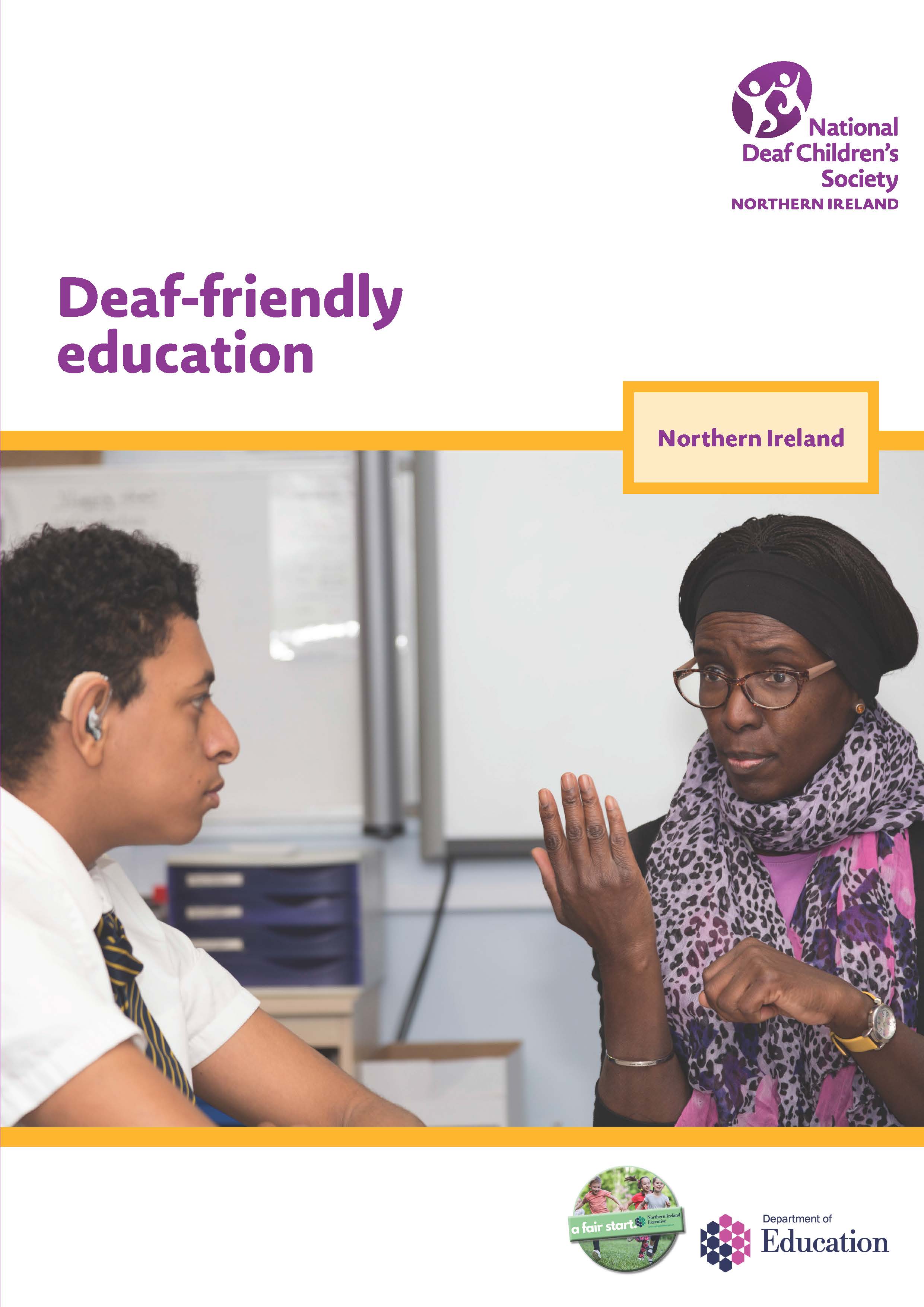 Deaf-friendly education: Northern Ireland
Deaf-friendly education: Northern IrelandA guide for professionals working with deaf children in educational settings in Northern Ireland.
-
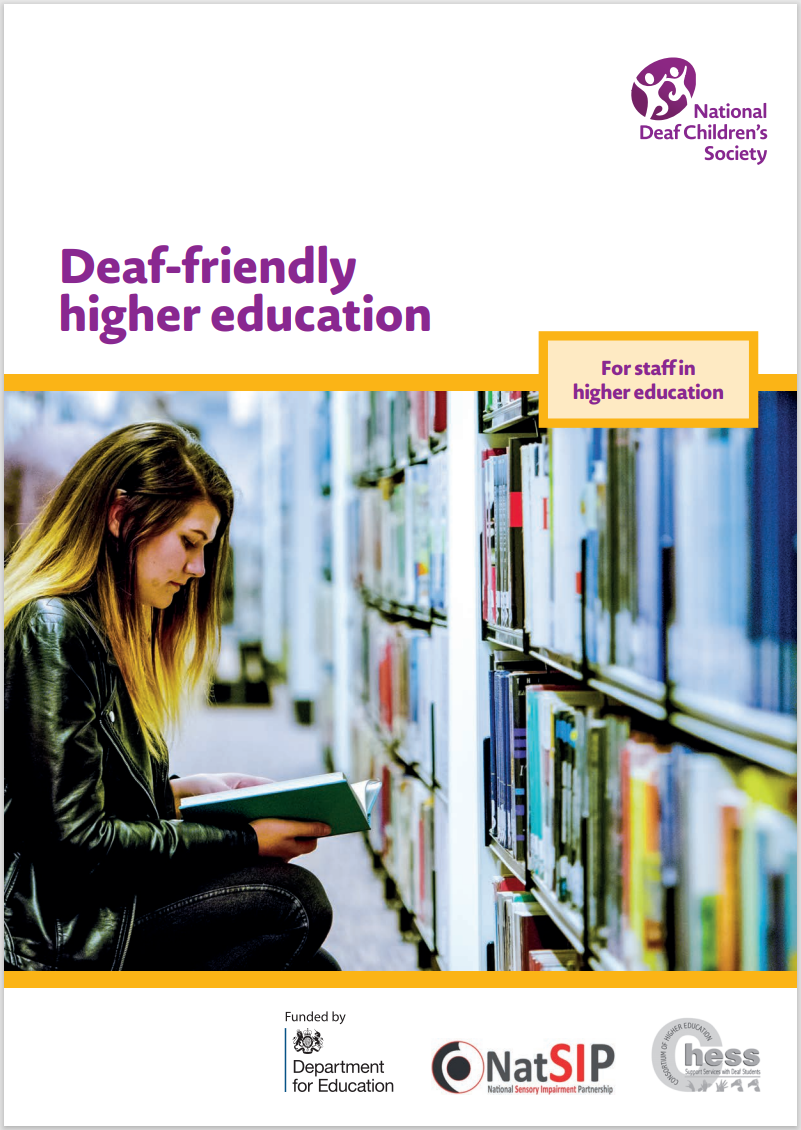 Deaf-friendly higher education
Deaf-friendly higher educationInformation for higher education staff on how to support deaf young people in higher education, including university and apprenticeships.
£0.00
-
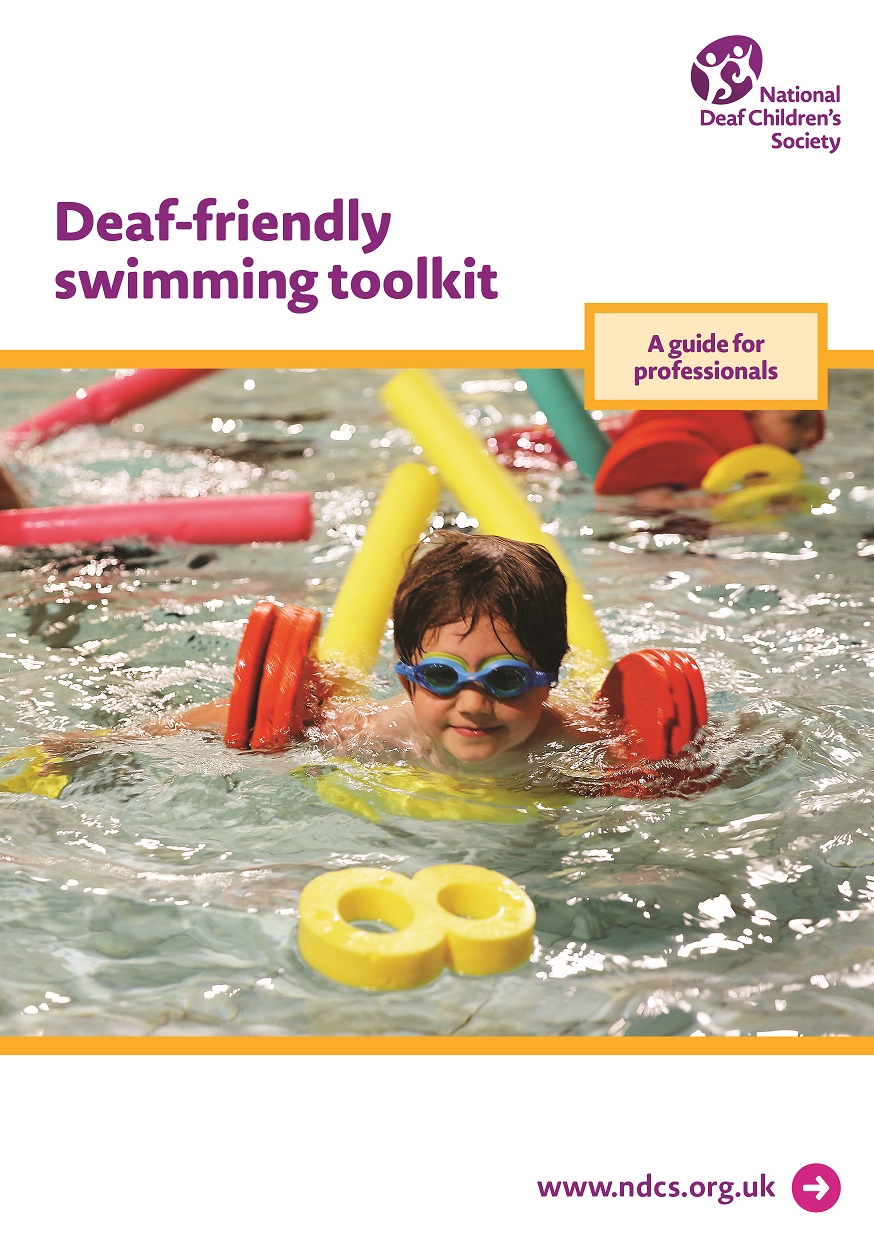 Deaf-friendly swimming toolkit
Deaf-friendly swimming toolkitThe deaf-friendly swimming toolkit is a guide for professionals with information, advice and tips on how to make your swimming activities inclusive for deaf swimmers at all levels.
£0.00
-
 Deaf-friendly teaching: For children who use English as an additional language (EAL)
Deaf-friendly teaching: For children who use English as an additional language (EAL)This resource is for anyone working with deaf children who use English as an additional language (EAL)
£0.00
-
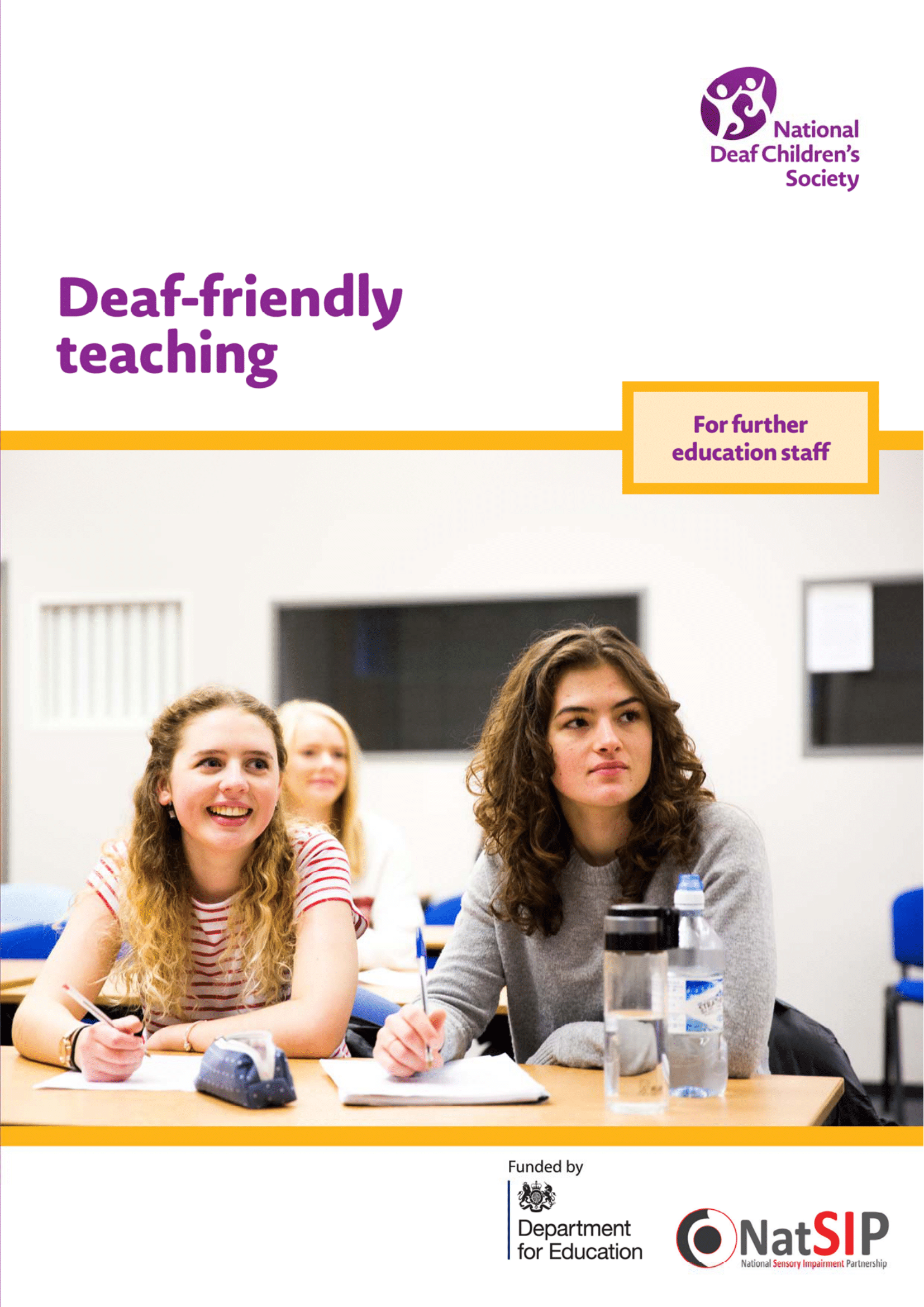 Deaf-friendly teaching: A guide for further education staff
Deaf-friendly teaching: A guide for further education staffA guide to help staff meet the needs of deaf young people in further education, ensuring they have equal access to other students.
£0.00
-
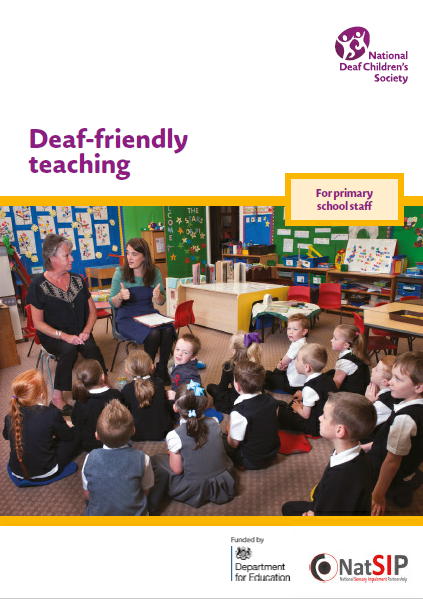 Deaf-friendly teaching: For primary school staff
Deaf-friendly teaching: For primary school staffThis resource is for anyone who is working with deaf children in a primary school.
£0.00
